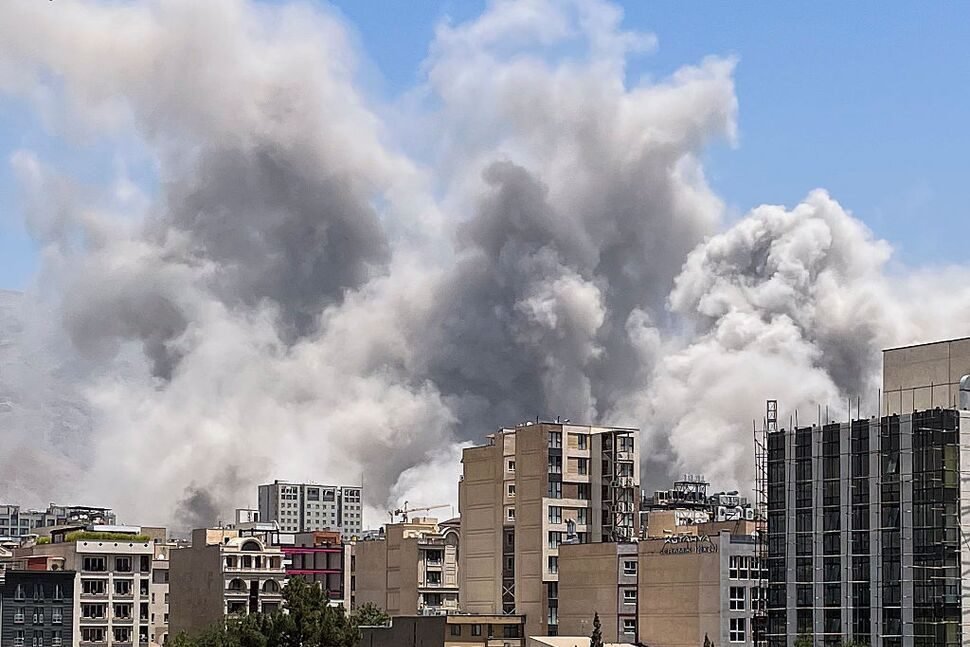
By Olivier Knox | US News | June 23, 2025
President Donald Trump went all in this weekend on the biggest gamble of his second term: A direct military strike on Iran, aimed at destroying – or at least setting back – that country’s nuclear program. Here are six questions the historic attack raises.
1. How Effective Was It?
Trump says the American strikes “completely and totally obliterated” Iran’s main facilities for uranium enrichment – the process of making fuel potent enough for nuclear bombs.
But neither Defense Secretary Pete Hegseth nor Gen. Dan Caine, the chairman of the joint chiefs of staff, would say whether Iran retained the ability to make a nuclear weapon. Caine said the Iranian facilities had suffered “extremely severe damage and destruction” and that it would take time to assess the actual results. That’s not just a Pentagon job: The International Atomic Energy Agency, should it gain access to the sites, could also weigh in.
2. Does Iran Retaliate?
The American strikes, like the Israeli attacks that preceded them, came at a time when Iran is historically weak. Most of its regional proxies – Hamas in Gaza, Hezbollah in Lebanon – have been bloodied, raising doubts about their ability to retaliate on Tehran’s behalf.
But the roughly 40,000 U.S. military personnel on the ground in the region could still face threats from Iran-aligned militias in Syria and Iraq, as well as the Houthis in Yemen, who withstood a U.S. military campaign earlier this year.
On Monday, Iran said it had fired a volley of missiles at the al-Udeid Air Base in Qatar, home to thousands of U.S. troops. Qatar said its air defenses intercepted the rockets. There were no reports of deaths or injuries.
Iran’s parliament has approved a measure endorsing the closure of the Strait of Hormuz, a choke point for international trade, according to Iranian state media. If Tehran successfully shuts it down, it could lead to higher gas prices and disrupted supply chains in Europe and the United States.
In the past, American decisionmakers told me they worried about Iranian retaliation in the form of terrorist attacks. That’s a huge question mark here – and it would sharply escalate the conflict.
3. Are the U.S.-Iran Talks Dead?
Did the U.S. attack kill off prospects of nuclear negotiations with Iran? Or did it create the conditions for coercive diplomacy?
Asked whether diplomacy was still an option, Iranian Foreign Minister Abbas Araghchi told reporters in Istanbul: “This is not the case right now.”
In the aftermath of the strikes, senior American officials played down the prospects the attack was just the start of a broader military campaign – while retaining that as an option.
“This is most certainly not open-ended,” Hegseth said.
But the enemy gets a vote. And American warnings of, “If they hit back, we’ll hit back harder” makes this open-ended.
4. What Will Russia and China Do?
Russia and China were central to the diplomacy that yielded a nuclear deal with Iran under President Barack Obama. Trump ripped it up, saying he would quickly get a better deal. He did not, which is part of what got the world to the current volatile moment.
Iran’s foreign minister headed to Moscow on Monday to seek help from Russian President Vladimir Putin, Reuters reported. It was not immediately clear what sort of assistance Tehran wants.
China has condemned the attacks. So did Putin. But the real question is if they object enough to take practical action.
5. Is Congress Out of The ‘War’ Conversation?
Every White House I have covered – from the last days of President Bill Clinton onward – has had a testy relationship with Congress when it comes to which branch of government decides whether, when and how young Americans will be hurled into military conflict abroad.
The Constitution vests Congress with the power to declare war or authorize the use of military force. It also declares that the president is commander in chief of the armed forces.
I have not yet seen a formal administration notification to Congress laying out the legal justification for striking Iran. What will they formally invoke?
But Trump is hardly the first president to sideline Congress in matters of war. More on that in tomorrow’s newsletter.
6. Will MAGA Fissure?
After condemning his predecessors’ “forever wars” and repudiating the neocon blueprint that led to open-ended interventions in the Middle East, Trump has now delivered the neocon dream project: A military attack to try to neuter Tehran’s nuclear program and possibly precipitate regime change.
Some of his most fervent supporters had warned in the run up to this weekend’s strikes that this would amount to an “unforgivable betrayal” of his voters.
Will the movement fissure? Probably not. Trump has proved time and time again that Republicans may kvetch a bit but will eventually line up behind him.
Please consider supporting open, independent journalism – no contribution is too small!








